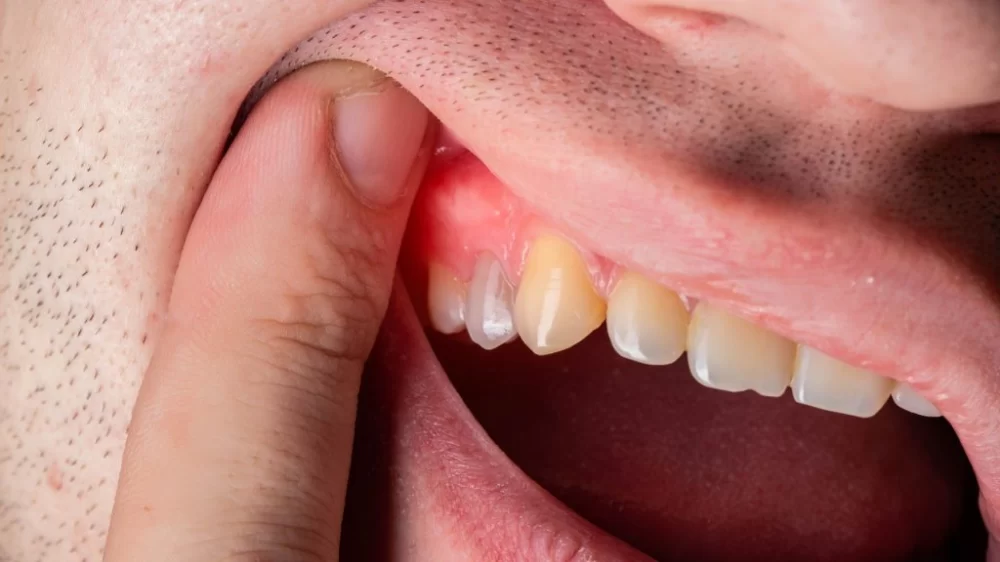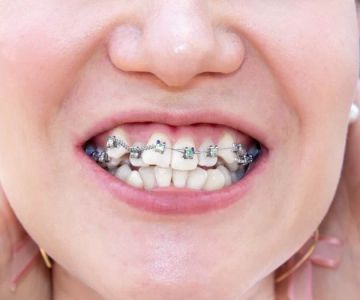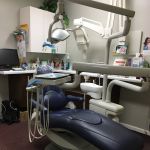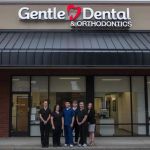
- Understanding Inflamed Gums After Eating and Brushing
- Common Causes of Gum Inflammation Post-Meal and Brushing
- Effective Methods to Treat Inflamed Gums
- Personal Experience with Gum Inflammation Care
- Professional Advice for Sensitive Gums Care
- Choosing the Right Products and Services
Understanding Inflamed Gums After Eating and Brushing
Experiencing inflamed gums after eating or brushing can be uncomfortable and concerning. Gum inflammation, medically known as gingivitis, occurs when the gum tissue becomes irritated, swollen, or tender. This inflammation can sometimes be triggered or worsened by certain foods or brushing habits.
Why Does Gum Inflammation Occur Post-Eating and Brushing?
After eating, especially acidic or sugary foods, the oral environment becomes more prone to bacterial growth that can irritate gums. Additionally, improper or overly aggressive brushing can traumatize sensitive gum tissue, leading to redness and swelling. Recognizing these triggers is essential for learning how to treat inflamed gums after eating and brushing effectively care.
The Importance of Timely Treatment
Ignoring inflamed gums can lead to more serious dental problems such as periodontitis, which affects the bone supporting teeth. Early intervention not only relieves discomfort but also protects long-term oral health.
Common Causes of Gum Inflammation Post-Meal and Brushing
Understanding what causes gum inflammation after meals and brushing helps in developing targeted care strategies.
1. Food Particles and Bacterial Buildup
Leftover food particles, especially from sticky or sugary foods, encourage bacterial growth at the gumline. This buildup irritates gum tissue and triggers inflammation.
2. Acidic and Spicy Foods
Acidic foods such as citrus fruits or spicy dishes can temporarily inflame gums, especially if they are already sensitive or damaged.
3. Aggressive Brushing Techniques
Using hard-bristled toothbrushes or brushing too vigorously can cause micro-tears in the gums, leading to swelling and tenderness.
4. Poor Oral Hygiene
Inadequate brushing and flossing allow plaque accumulation, which is the primary cause of gum inflammation.
Effective Methods to Treat Inflamed Gums
Treating inflamed gums after eating and brushing involves both immediate soothing and long-term care adjustments.
1. Rinse with Warm Salt Water
A simple and effective remedy is rinsing the mouth with warm salt water, which helps reduce swelling and kill bacteria. Mix half a teaspoon of salt in a glass of warm water and rinse gently for 30 seconds.
2. Use a Soft-Bristled Toothbrush
Switching to a soft-bristled toothbrush prevents further irritation while maintaining cleanliness. Coupled with gentle brushing techniques, this helps gums heal faster.
3. Maintain Proper Brushing and Flossing Habits
Brush twice daily using circular motions and floss daily to remove plaque without harming gums. Avoid harsh scrubbing which exacerbates inflammation.
4. Avoid Trigger Foods Temporarily
If certain foods worsen your symptoms, limit their intake until the gums recover. Focus on a balanced diet rich in vitamins that promote gum health, such as vitamin C and D.
5. Apply Over-the-Counter Oral Care Products
Anti-inflammatory gels and mouthwashes formulated for sensitive gums can provide relief and support healing. However, consult a dentist before prolonged use.
6. Stay Hydrated and Practice Good Overall Health Habits
Hydration supports saliva production, which naturally protects gums. Healthy lifestyle habits including avoiding tobacco also enhance gum recovery.
Personal Experience with Gum Inflammation Care
Mark, a fitness coach, noticed his gums inflamed regularly after meals and brushing harshly. By consulting with dental professionals and switching to a soft toothbrush alongside salt water rinses, he successfully reduced his inflammation within weeks. Mark shares how learning to brush gently and avoid acidic foods during flare-ups made a big difference in his daily comfort and confidence.
This real-world example highlights how practical adjustments and proper care can quickly improve inflamed gums caused by common daily activities.
Professional Advice for Sensitive Gums Care
Dentists stress the importance of regular dental check-ups to monitor gum health and catch inflammation early. Professionals at Dentistry Toothtruth recommend personalized care plans that may include:
Customized Oral Hygiene Guidance
Instruction on brushing and flossing techniques tailored to sensitive gums can prevent further damage.
Professional Cleanings
Removing tartar and plaque buildup professionally is essential to control inflammation.
Targeted Treatments
In some cases, dentists may suggest medicated mouthwashes or gels to accelerate healing.
Choosing the Right Products and Services
For those seeking effective solutions on how to treat inflamed gums after eating and brushing effectively care, Dentistry Toothtruth offers a trusted selection of oral care products designed for sensitive gums. Their range includes gentle toothbrushes, anti-inflammatory rinses, and specialized toothpastes recommended by dental experts.
Additionally, Dentistry Toothtruth connects customers with professional dental services that provide personalized treatment and advice, ensuring a comprehensive approach to managing gum inflammation and maintaining oral health.
By understanding the causes and adopting these effective care methods, anyone can soothe inflamed gums and enjoy a healthier, more comfortable smile.







 American Dental Solutions | East Norriton, PA4.0 (288 review)
American Dental Solutions | East Norriton, PA4.0 (288 review) Greencastle Dental4.0 (653 review)
Greencastle Dental4.0 (653 review) Charles A. Messa Jr. DDS4.0 (14 review)
Charles A. Messa Jr. DDS4.0 (14 review) Premier Dental Center4.0 (324 review)
Premier Dental Center4.0 (324 review) Woodbury Family Dentists4.0 (57 review)
Woodbury Family Dentists4.0 (57 review) Gentle Dental Milwaukie3.0 (171 review)
Gentle Dental Milwaukie3.0 (171 review) The Importance of Oral Health Education During Pregnancy for a Healthy Pregnancy
The Importance of Oral Health Education During Pregnancy for a Healthy Pregnancy Best Tips for Brushing Your Teeth Properly for Healthy Gums: Essential Techniques for Oral Health
Best Tips for Brushing Your Teeth Properly for Healthy Gums: Essential Techniques for Oral Health Why Skipping Dental Checkups Can Lead to Bigger Oral Health Problems
Why Skipping Dental Checkups Can Lead to Bigger Oral Health Problems Advantages of Porcelain Dental Restorations
Advantages of Porcelain Dental Restorations How Can Diabetes Cause Tooth and Gum Problems? Preventing and Managing Oral Health Issues
How Can Diabetes Cause Tooth and Gum Problems? Preventing and Managing Oral Health Issues Healthy Habits for Promoting Good Oral Health and Hygiene: Tips for a Healthy Smile
Healthy Habits for Promoting Good Oral Health and Hygiene: Tips for a Healthy Smile